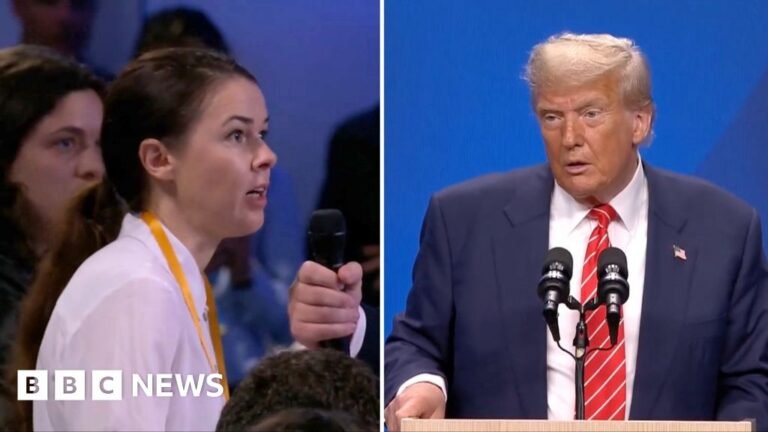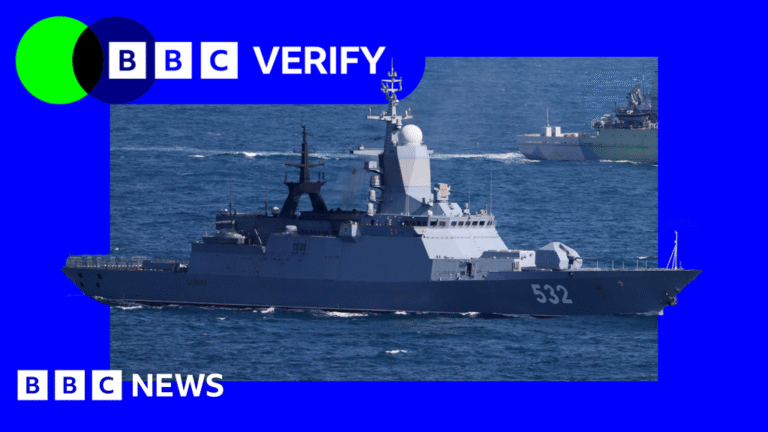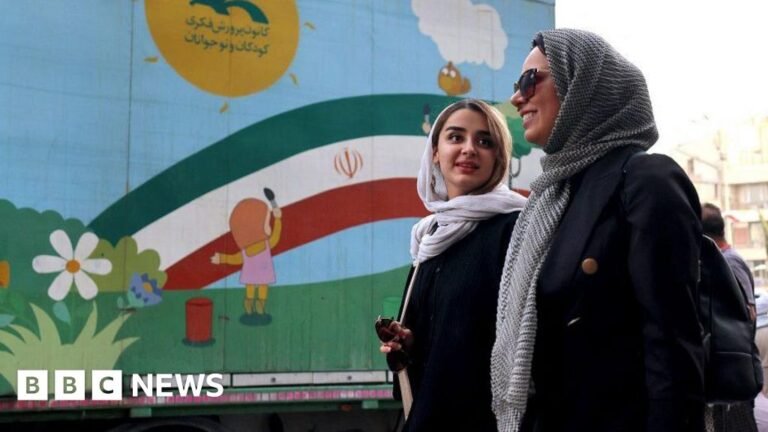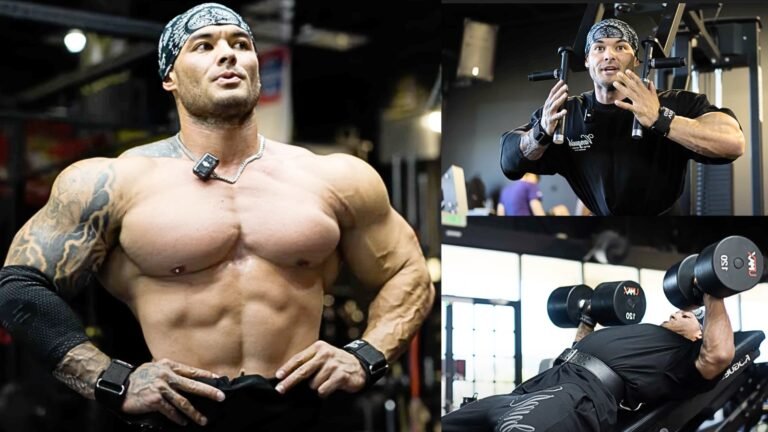
Europe digital editor
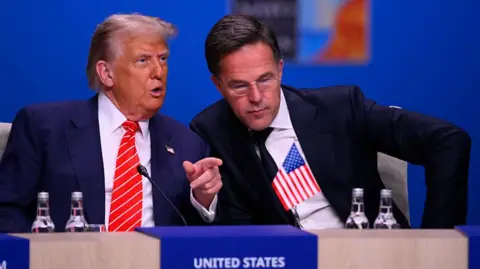 JOHN THYS/AFP
JOHN THYS/AFPNato leaders meeting in The Hague have agreed to ramp up defence spending to 5% of their countries’ economic output by 2025, following months of pressure from US President Donald Trump.
In a statement they said they were united against “profound security threats and challenges, in particular the long-term threat posed by Russia to Euro-Atlantic security and the persistent threat of terrorism”.
However, there was no mention of Russian aggression in its war in Ukraine, which there had been a year ago.
Nato leaders did reaffirm their “ironclad commitment to collective defence” – the Article Five mutual security guarantee if any one member comes under attack.
“No-one should doubt our capacity or determination should our security be challenged,” said Nato Secretary General Mark Rutte. “This is a stronger, fairer and more lethal alliance that our leaders have begun to build”.
The US president had earlier appeared to raise questions about the security guarantee, referring to “various definitions of Article Five”. But Trump said after the summit: “I stand with [Article Five], that’s why I’m here.”
The Hague summit has been described by several leaders as historic, and Rutte said decisions made on Wednesday would include continued support for Ukraine while pushing for peace.
The commitment to raise defence spending over 10 years involves at least 3.5% of each member state’s GDP on core defence expenditure by 2035, plus up to 1.5% on a broadly defined series of investments loosely connected to security infrastructure.
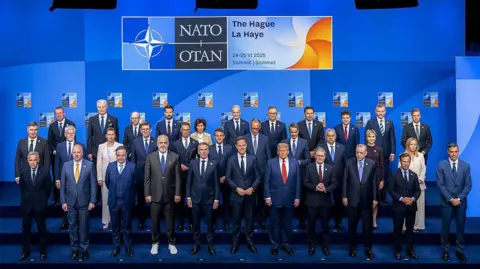 AFP
AFPThe US president hailed the summit as a “big success”. He had said earlier that the hike in spending would be a “great victory for everybody, I think. We will be equalised shortly, and that’s the way it has to be”.
Spain in particular had objected to the 5% target ahead of the meeting. Economy Minister Carlos Cuerpo said Madrid was making an “enormous effort” to reach a target of 2.1% and “the discussion about the percentage is misguided”.
As the leaders gathered for the traditional “family photo”, Spanish Prime Minister Pedro Sánchez appeared to stand by himself at the far end of the group.
Nevertheless, Sánchez later went ahead and signed Nato’s statement.
The Belgian government had also expressed reservations, but Prime Minister Bart de Wever told reporters that while it wouldn’t be easy “3.5% within 10 years is a realistic goal”.
Slovakia had also raised concerns about the big hike in defence spending, but President Peter Pellegrini indicated that Bratislava would not stand in the way.
French President Emmanuel Macron took issue with President Trump’s trade tariff confrontation with the European Union and called for a deal.
“We can’t say to each other, among allies, we need to spend more… and wage trade war against one another, it makes no sense.”
The Hague summit, which began with a dinner on Tuesday night hosted by King Willem-Alexander and Queen Maxima, has been scaled back so Wednesday’s set-piece gathering of leaders was due to last only two and a half hours.
Rutte told Nato leaders that they were meeting at a “dangerous moment”, and that the defence alliance’s guarantee of mutual defence – “an attack on one is an attack on all, sends a powerful message”.
Trump’s visit to The Hague was his first trip to a Nato summit since 2019 and he was due to meet Ukraine’s Volodymyr Zelensky on the sidelines afterwards.
However, the US president was more keen to talk about conflict in the Middle East than the war in Ukraine, when he spoke to reporters on Wednesday.
“He’s got a little difficulty, Zelensky, a nice guy,” said Trump. “I’ve spoken to Putin a lot… he volunteered help on Iran. I said do me a favour, help us on Russia, not Iran.”
In their final communique, Nato member states stressed their commitments to providing support for Ukraine, “whose security contributes to ours”, adding that direct contributions to Kyiv’s defence and its defence industry would be included in assessment of allies’ defence spending.
UK Prime Minister Sir Keir Starmer said Nato was as relevant and important now as it had ever been: “We live in a very volatile world and today is about the unity of Nato, showing that strength. We’re bigger than we were before, we’re stronger than we were before.”

